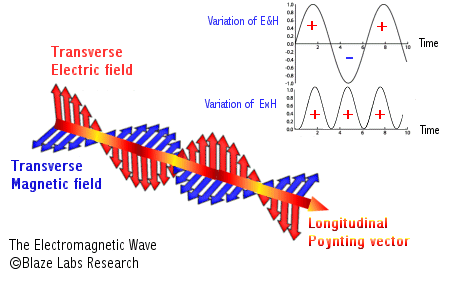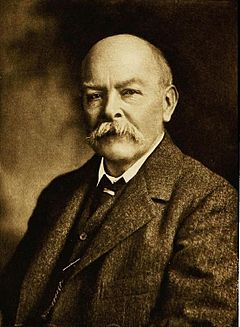Poynting Vector: Difference between revisions
(→Simple) |
|||
| Line 22: | Line 22: | ||
===Simple=== | ===Simple=== | ||
===Moderate=== | ===Moderate=== | ||
Revision as of 22:49, 2 December 2015
Claimed by Tanner Shaw (tshaw30)
The Poynting vector represents the direction and magnitude of the flux in energy from an electromagnetic field. It was originally discovered by John Henry Poynting in 1884.
The Main Idea
The poynting vector describes the magnitude and direction of the flux in energy from an electromagnetic field.
A Mathematical Model

The poynting vector can be derived by the equation [math]\displaystyle{ \vec{S} = {\frac{1}{μ_0}}\vec{E}\times\vec{B} }[/math] where E is the electric field vector, and B is the magnetic field vector, and μ0 is the magnetic constant.
A Computational Model
How do we visualize or predict using this topic. Consider embedding some vpython code here Teach hands-on with GlowScript
Examples
Be sure to show all steps in your solution and include diagrams whenever possible
Simple
Moderate
Difficult
Connectedness
- How is this topic connected to something that you are interested in?
- How is it connected to your major?
- Is there an interesting industrial application?
History
Put this idea in historical context. Give the reader the Who, What, When, Where, and Why.

John Henry Poynting, an English physicist and professor, was the first to derive the equation that described the direction of electromagnetic flux. His work for the equation was published in 1884. Nikolay Umov and Oliver Heaviside both independently discovered the poynting vector as well.
See also
Are there related topics or categories in this wiki resource for the curious reader to explore? How does this topic fit into that context?
External links
Internet resources on this topic
References
This section contains the the references you used while writing this page